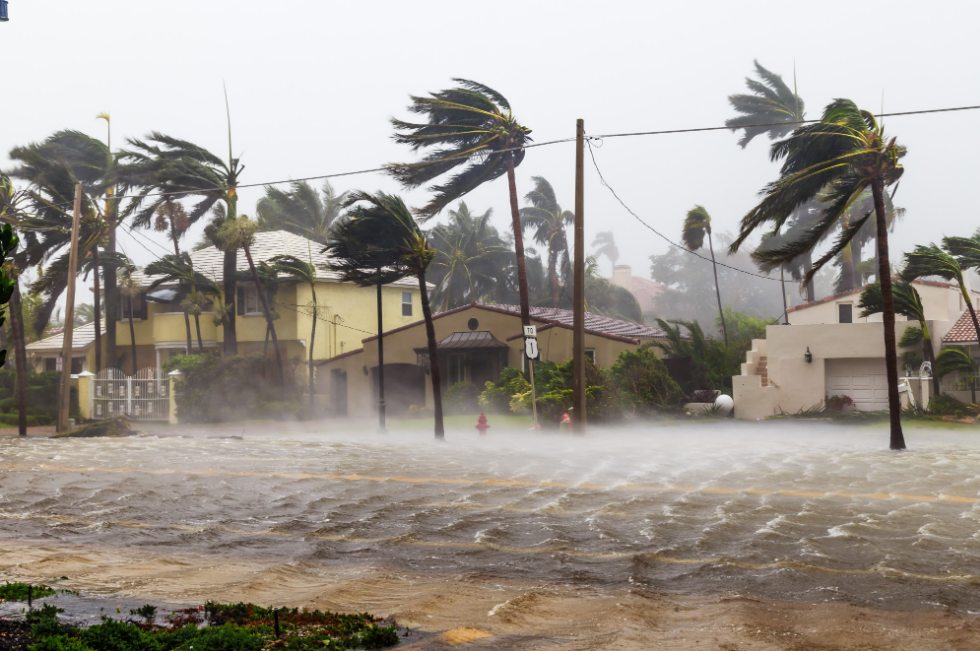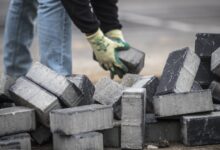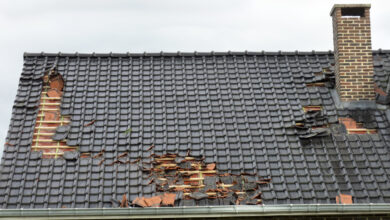
How to Protect Your House From Natural Disasters
Do you know in 2021, there were 20 climate disasters in the U.S that resulted in losses of at least $1 billion?
Natural disasters such as hurricanes, tornadoes, floods, and earthquakes cause a lot of havoc. They result in property destruction, personal injuries, and financial losses.
When these disasters strike, residential homes usually account for a larger percentage of the total damages. Homeowners caught unawares by such disasters are forced to endure massive destruction. If you live in areas prone to natural disasters, you should take proactive measures to protect your home.
However, the measures taken can only be effective if they are properly implemented. For example, even if you clear drains and don’t repair your home’s foundation, disaster will still strike when storms come.
If, for long, you have been wondering which measures would best safeguard your house from natural disasters, you are at the right place. Here are tips on how to protect your house from natural disasters
Table of Contents
Obtain Homeowners Insurance
Homeowners’ insurance covers damages to the home’s exterior and personal belongings if a disaster strikes.
If the destruction is huge and you have to leave home waiting for repairs to be done, the insurance will cover hotel and food expenses. However, not all-natural disasters might be covered by your homeowner’s insurance.
Most homeowners’ insurance doesn’t cover floods and earthquakes. In such a case, you will have to purchase separate floods and earthquake covers if you live in areas where such disasters are common.
Install New Garage Doors
Building new garage doors is essential if you live in areas prone to strong windows. Garage doors not built to withstand strong winds might easily be blown when a hurricane strikes. Once the garage door is blown, the winds will make their way into the house.
As more winds build up in the house, pressure increases; this pressure can easily blow the entire roof structure. To prevent such a disaster, you must build garage doors that can withstand winds of up to 130 mph.
Caulk Around the Doors and Windows
Strong winds usually blow the rain towards a home’s wall. If cracks exist on the walls, windows, and doors, moisture will find its way into the house. If not taken care of, moisture can cause water damage inside your home.
To prevent this from happening, you should apply a fresh layer of caulk around the points of entry. Ensure to do this before the rainy season starts to give the caulk enough time to dry. When the caulk dries, it becomes air-tight, preventing moisture from sipping through.
Place Moistened Towels in Front of Closed Doors
Placing moistened towels in front of the closed door is essential if you live in areas prone to volcanoes. When volcanoes erupt, they push a lot of dust, ash, and other materials into the air. High winds blow such ashes and materials towards your home.
If there are spaces for the wind to pass through, it can bring such particles into your house. You can prevent this by placing a moist towel in front of the closed doors. Moist towels block the winds and trap any lava particles carried by the wind.
However, this might not be enough to keep lava particles outside the house if cracks and space are present on the walls and windows. Therefore, ensure to cover such cracks to keep the lava out totally.
Bolt the House to the Foundation
This measure is essential if you live in an earthquake-prone area. If a strong earthquake occurs, it can easily separate the home from a loose foundation. As a homeowner having the home separated from the foundation is the worst and most expensive repair to think of.
To prevent this from happening, bolt your home to the foundation. If you don’t have the experience to bolt your home to the foundation, hire an expert. The expert will bolt a still plate to your home’s foundation, making the home strong enough to withstand earthquake tremors.
However, in some cases, disasters might strike despite taking the appropriate measures to safeguard your home from disasters. In such cases, you should contact a home restoration company to repair any damages sustained.
But when hiring a restoration company, be keen. Not all companies are good at what they do. So ensure to hire a licensed restoration company with a proven success track.
Secure Porches and Carports
Securing the porches and carports is essential if you live in areas prone to strong winds. Lose porches and carports can easily be ripped off by strong winds. In addition, the left holes could be the basis for further destruction.
Therefore, before the windy season starts, secure the pillars holding the porch and carport. If a wood foundation supports your porch and carport, add flashing tape to the top of the beams and joints.
Use Flexible Connections On Gad and Water Lines
Rigid water and gas lines are easily ripped off in case of a strong earthquake. This can result in more property damage and serious injuries to the home occupants. But you can prevent this by using flexible connections on gas and water lines.
Flexible connections bend during an earthquake or storm, ensuring the gas and water lines remain intact.
Install Backflow Vales
Installing backflow valves is essential if you live in areas prone to floods. Floods can force sewer back to the drain pipes and finally into your home. Sewage can cause immense damage to your home and is also a major health hazard.
If you don’t want this to happen, install backflow valves to prevent the sewage from flowing back into your house.
Hang Heat Resistant Curtains
Hanging heat-resistant curtains is a good move if you live in wildfire-prone areas. During wildfire outbreaks, the fire can creep near your home windows. If there is nothing to keep the fire out, it can end up causing extensive damage to your home.
You can prevent this from happening by hanging heat-resistant curtains on your windows. Heat-resistant curtains don’t catch fire and can keep the wildfire off your home for as long as possible.
Secure the Chimney
If you live in areas where winter storms and earthquakes are common, ensure to secure the chimney. If the chimney is not secured, it might fall, damaging your roof. The last thing you would want is the roof getting damaged in the middle of a winter storm.
You can prevent the chimney from crumbling during a storm by adding a diagonal steel brace to it.
Keep Storm Drains Clear
Residential communities have storm drains for draining excessive rain and groundwater. If the drains are clogged, they won’t function as required. If flooding occurs, the flood water will get directed towards your home.
Floods can cause massive damage to your home and property. Unfortunately, if you don’t have flood insurance, you will have to bear all the losses caused by the floods. To prevent this from happening, ensure community drains are regularly cleaned.
Use Sandbags
Placing sandbags around the home is essential if you live in flood-prone areas. You can place the sandbags as close as your doors if you expect a hurricane to strike soon. The sandbags prevent floodwater from seeping into your home during a hurricane.
But for adequate protection, stack the sandbags at least one foot high.
Use Fire Resistant Building Materials
Fire-resistant building materials help minimize the impact of fire in case of a wildfire outbreak. If you live in areas prone to wildfires, it’s time you change your home’s building material. Materials such as timber easily catch fire, so you should have them replaced.
Some of the fire-resistant building materials you can use include metal tiles, clay tiles, and stones. For example, suppose you have wooden window and door frames; ensure to replace them with steel ones. These upgrades will make it possible for your home to withstand wildfires.
Repair Loose, Missing, or Damage Roofing
Your roof is an integral part of your home. It’s supposed to safeguard you and your family from harsh weather elements. But if the roof is damaged, it will not fully serve its purpose. Strong winds and hurricanes easily blow away loose or damaged shingles.
This gives room for rainwater to leak into your home and cause damage. Therefore, before the storm season starts, inspect for any signs of damage on your roof. You can hire a professional for a more thorough roof inspection.
Ensure to have any issues with your roof fixed immediately. To prevent your roof from being blown away, you can attach the roof to the top of the wall using a steel connector.
Secure Outdoor Furniture
Outdoor furniture on a porch or patio allows you to enjoy the outdoor environment during summer and spring. But this does not mean you should care less about your outdoor furniture when summer ends. On the contrary, you will still need your outdoor furniture next summer.
Therefore, you must secure your outdoor furniture if the storm season is almost here. You can do so by tying everything down. Move any loose items that cannot be tied, such as sporting equipment, into your house.
Prune Large Trees
During a storm, tree branches can detach and land on your house’s roof. If this happens, the falling branches can cause huge damage to the roof. To prevent this from happening, trim branches of any tree around your home.
You can also request your neighbors to trim any tree branches crossing property lines.
Secure Heavy Furniture to the Walls
Strong earthquakes can knock over heavy items such as furniture and refrigerators. If such items land on a passer-by, they can cause serious injuries.
Besides, items such as fridges and electronics easily get damaged if they fall to the ground. To prevent this, secure heavy items to the walls using brackets. You can redesign your home to accommodate in-built fridges and other items if possible.
Reinforce Window and Doors
In case a disaster strikes, windows, and doors are usually among the first parts to receive the impact of the disaster. For that reason, you should consider reinforcing them. For a temporary reinforcement, you can board up your windows and doors with plywood.
This would help the windows and the doors withstand the impact of hurricanes for a while. But for a long-term solution, install doors and windows designed to withstand hurricanes’ impact.
Cover Crawl Spaces
When the crawl spaces are not sealed, wind can blow embers from nearby wildfires into your home. If this happens, you will likely lose your home to fire damage. To prevent this, seal off the crawl space and other entry points.
A wire mesh of about a quarter an inch might be suitable to seal off these crawl spaces.
Repair Cracks and Holes in the Foundation
If your foundation is not strong, your home will not hold when storms and hurricanes strike. Besides, if the foundation has holes and cracks, water will seep through and cause damage to the flooring. So, seal any cracks and holes available to keep your foundation strong.
If the foundation has experienced much damage, it’s crucial to have it replaced entirely.
Install Hurricane Straps
Hurricane straps are metal or nylon straps that attach the roof to the walls of the house, providing additional support in high winds.
Check with your local building code office to see if hurricane straps are required or recommended in your area. If they are, make sure they are installed by a qualified contractor.
Protect Your House From Natural Disasters
Natural disasters strike at any time, and when they do, they wreak havoc. For this reason, you should take all measures possible to protect your homes from such disasters. Follow the above guide for protecting your home against natural disasters, and you will get it right.
Was this article informative? If so, ensure to go through our other blogs.








